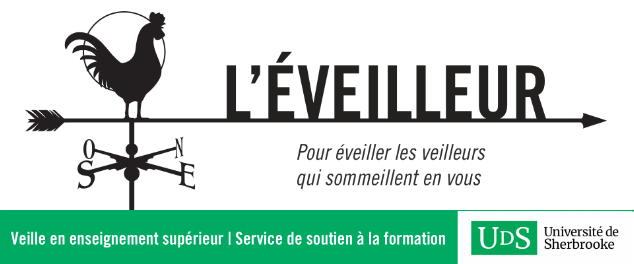Petit moment d’émotion pour le coordonnateur de la veille que je suis alors que j’apprends le décès d’Alvin Toffler à 87 ans, sociologue de formation et futurologue de carrière. Adolescent, j’ignorais bien sûr que je pratiquerais un jour cette profession, mais la lecture de La troisième vague (1980) a sans doute eu des impacts alors insoupçonnés sur ma vie professionnelle… Merci à mon père d’avoir laissé traîner ce livre sur la table du salon.
Il y a beaucoup à critiquer dans l’oeuvre de Toffler – il semble que l’homme écrivait avec son épouse, mais la contribution de celle-ci à titre d’auteure n’a été reconnue qu’à partir de 1995 – : un style parfois grandiloquent, une certaine idée du progrès et du libéralisme économique, etc. Toutefois, il est difficile d’en renier l’influence sur les dirigeants de la fin du XXe siècle, incluant Mikhaïl Gorbatchev et l’ex-secrétaire général du Parti communiste chinois, Zhao Ziyang.
En lien avec la formation, on cite souvent ce qui semble devenu un lieu commun mais qui était déjà assez prémonitoire à l’époque:
““By instructing students how to learn, unlearn and relearn, a powerful new dimension can be added to education. Psychologist Herbert Gerjuoy of the Human Resources Research Organization phrases it simply: ‘The new education must teach the individual how to classify and reclassify information, how to evaluate its veracity, how to change categories when necessary, how to move from the concrete to the abstract and back, how to look at problems from a new direction—how to teach himself. Tomorrow’s illiterate will not be the man who can’t read; he will be the man who has not learned how to learn.” (Powershift, 1990)
J’ai cependant trouvé ceci, qui m’inspire tout autant…
“In education, we need to begin paying attention to matters routinely ignored. We spend long hours trying to teach a variety of courses on, say, the structure of government or the structure of the amoeba. But how much effort goes into studying the structure of everyday life — the way time is allocated, the personal uses of money, the places to go for help in a society exploding with complexity? We take for granted that young people already know their way around our social structure. In fact, most have only the dimmest image of the way the world of work or business is organized. Most students have no conception of the architecture of their own city’s economy, or the way the local bureaucracy operates, or the place to go to lodge a complaint against a merchant. Most do not even understand how their own schools — even universities — are structured, let alone how much structures are changing under the impact of the Third Wave.” (The Third Wave, 1980)
Et en écho à des intérêts plus personnels…
““Science fiction is held in low regard as a branch of literature, and perhaps it deserves this critical contempt. But if we view it as a kind of sociology of the future, rather than as literature, science fiction has immense value as a mind-stretching force for the creation of the habit of anticipation. Our children should be studying Arthur C. Clarke, William Tenn, Robert Heinlein, Ray Bradbury and Robert Sheckley, not because these writers can tell them about rocket ships and time machines but, more important, because they can lead young minds through an imaginative exploration of the jungle of political, social, psychological, and ethical issues that will confront these children as adults.” (Future Shock, 1970)
Sources:
“Alvin Toffler“, Wikipedia [page consultée le 30 juin 2016]
“Alvin Toffler > Quotes“, Goodreads [page consultée le 30 juin 2016]
AFP, “Le futurologue Alvin Toffler est décédé“, Lapresse.ca, 29 juin 2016






